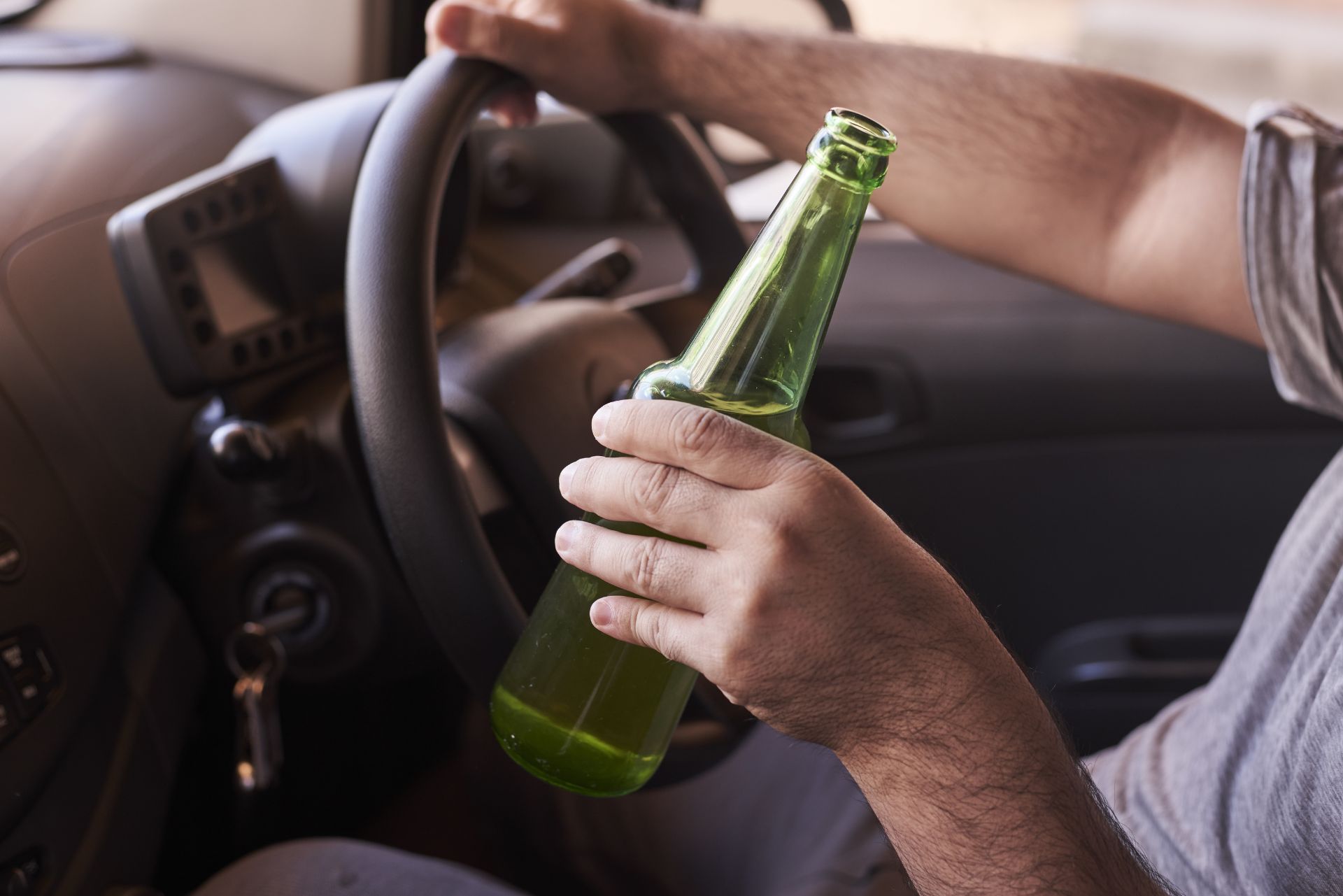
Driving under the influence (DUI) is a serious offense in Florida, and it comes with significant legal and financial repercussions. One of the most pressing issues for individuals facing DUI charges is the impact on car insurance. This article aims to provide comprehensive information on Florida DUI car insurance, including how it works, what to expect, and tips for navigating this challenging situation.
Understanding DUI Charges in Florida
Before delving into the specifics of car insurance after a DUI, it's essential to understand what constitutes a DUI in Florida. A DUI charge occurs when a driver operates a vehicle with a blood alcohol concentration (BAC) of 0.08% or higher. However, even lower levels can lead to a DUI charge if the driver exhibits impaired behavior. This means that factors such as erratic driving, slurred speech, or the smell of alcohol can all contribute to a DUI arrest, regardless of the BAC reading. Law enforcement officers are trained to assess a driver's level of impairment through field sobriety tests, which can further complicate the situation for those who may not be over the legal limit but still appear intoxicated.
Legal Consequences of a DUI
The legal consequences of a DUI in Florida can be severe. First-time offenders may face fines, license suspension, community service, and even jail time, depending on the circumstances. Subsequent offenses lead to harsher penalties, including longer license suspensions and increased fines. In addition to these immediate repercussions, offenders may also be required to install an ignition interlock device in their vehicles, which prevents the car from starting if alcohol is detected on the driver's breath. This requirement not only adds to the financial burden but also serves as a constant reminder of the offense, impacting the offender's daily life and social interactions.
Moreover, a DUI conviction remains on a driver's record for 75 years, impacting future employment opportunities and insurance rates. Understanding these consequences is crucial for anyone facing a DUI charge, as they can affect various aspects of life, including insurance. Employers often conduct background checks, and a DUI on record can raise red flags, potentially hindering job prospects in industries that prioritize safety and responsibility. Additionally, many insurance companies view a DUI as a significant risk factor, leading to higher premiums or even denial of coverage altogether, which can leave individuals in precarious financial situations.
Impact on Driving Record
A DUI conviction results in points added to a driver's record, which can lead to increased insurance premiums. In Florida, accumulating 12 points within 12 months can result in a suspended license. Therefore, maintaining a clean driving record is vital for securing affordable insurance rates in the future. The ramifications extend beyond just the immediate financial implications; a poor driving record can also affect one's ability to secure certain jobs, particularly those that involve driving as a primary responsibility. Employers may be less inclined to hire individuals with a history of DUIs, viewing them as liabilities that could endanger their business or clients.
Furthermore, the long-term effects of a DUI on a driving record can also influence the types of insurance policies available. Many insurance companies may classify individuals with a DUI as high-risk drivers, which can limit options to only the most expensive plans. This classification can persist for several years, making it essential for individuals to seek ways to mitigate the impact, such as completing alcohol education programs or demonstrating responsible driving behavior over time. Engaging in these proactive measures can help in gradually restoring a positive driving record and potentially lowering insurance rates in the long run.

How DUI Affects Car Insurance in Florida
When a driver is convicted of a DUI, their car insurance situation changes drastically. Insurance companies view DUI offenders as high-risk drivers, leading to higher premiums or even denial of coverage altogether. Understanding these changes can help individuals prepare for what lies ahead.
Increased Premiums
After a DUI conviction, many drivers experience a significant increase in their car insurance premiums. Insurance companies often raise rates by 20% to 100%, depending on the severity of the offense and the driver's previous insurance history. This increase can last for several years, making it essential to budget accordingly.
Some insurance companies may also require drivers to obtain an SR-22 form, which is a certificate proving that the driver carries the minimum required insurance coverage. This form is often mandatory for high-risk drivers and can further increase insurance costs. Additionally, maintaining an SR-22 can be a cumbersome process, as it typically requires regular updates and renewals, which can add to the overall financial burden on the driver.
Finding Insurance After a DUI
Finding car insurance after a DUI can be challenging, but it is not impossible. Many drivers may find that their current insurance provider will drop them after a DUI conviction. In such cases, exploring options with various insurance companies is crucial.
Some insurers specialize in high-risk coverage and may offer policies tailored for individuals with DUIs on their records. It is advisable to compare quotes from multiple providers to find the best rates and coverage options. Furthermore, drivers should be aware that some companies may offer discounts for completing alcohol education programs or safe driving courses, which can help mitigate the financial impact of a DUI on insurance costs. Engaging in these programs not only demonstrates a commitment to responsible driving but may also improve the chances of securing more favorable insurance terms in the future.
Types of Car Insurance Coverage in Florida
Florida is a no-fault state, meaning that drivers must carry certain types of insurance coverage regardless of who is at fault in an accident. Understanding the types of coverage required and optional can help drivers make informed decisions when selecting insurance after a DUI.
Mandatory Coverage Requirements
In Florida, drivers are required to carry Personal Injury Protection (PIP) and Property Damage Liability (PDL) coverage. PIP covers medical expenses and lost wages for the policyholder and passengers, while PDL covers damages to other people's property in an accident.
The minimum required coverage amounts are $10,000 for PIP and $10,000 for PDL. However, after a DUI, it may be wise to consider higher coverage limits to protect against potential lawsuits and additional costs. This is particularly important given that the financial repercussions of a DUI can extend beyond immediate fines and penalties, potentially leading to increased liability in the event of an accident. Drivers should also be aware that Florida's lack of a cap on pain and suffering damages in certain cases can result in significant financial exposure.
Optional Coverage Types
In addition to mandatory coverage, drivers may choose to purchase optional coverage types, such as collision and comprehensive insurance. Collision insurance covers damages to the policyholder's vehicle in an accident, while comprehensive insurance protects against non-collision-related incidents, such as theft or natural disasters.
While these additional coverages may increase premiums, they can provide valuable protection, especially for high-risk drivers who may face higher repair costs after a DUI. Furthermore, drivers might consider adding uninsured/underinsured motorist coverage, which can be particularly beneficial in Florida, where many drivers may not carry adequate insurance. This type of coverage ensures that if an accident occurs with a driver who lacks sufficient insurance, the policyholder is still protected from financial loss. Ultimately, evaluating these options carefully can lead to a more secure and financially sound driving experience.
How to Lower Insurance Premiums After a DUI
While a DUI conviction often leads to higher insurance premiums, there are several strategies that drivers can employ to help mitigate these costs. By being proactive, individuals can find ways to lower their insurance rates over time.
Shop Around for Quotes
One of the most effective ways to lower insurance premiums is to shop around for quotes from different insurance providers. Each company has its own underwriting criteria and may assess risk differently. Comparing multiple quotes can help drivers find the best rates available.
Additionally, consider working with an insurance broker who specializes in high-risk insurance. Brokers can help navigate the complexities of finding coverage after a DUI and may have access to options that are not readily available to the public. They can also provide valuable insights into which companies are more lenient with their policies regarding DUIs, potentially saving you both time and money in the long run.
Complete a DUI Program
Many states, including Florida, offer DUI programs that can help reduce insurance premiums. Completing an approved program may demonstrate to insurance companies that the driver is taking steps to address their behavior, potentially leading to lower rates.
It's important to inquire with insurance providers about any discounts available for completing such programs, as this can lead to significant savings over time. Furthermore, these programs often include educational components that can enhance a driver's understanding of the risks associated with impaired driving, ultimately fostering safer driving habits. Some programs even offer certificates of completion that can be presented to insurance companies as proof of commitment to responsible driving.
Maintain a Clean Driving Record
Another crucial step in lowering insurance premiums after a DUI is to maintain a clean driving record moving forward. Insurance companies closely monitor driving history, and a record free of accidents or traffic violations can positively influence premium rates. This means that after serving any penalties associated with the DUI, it is essential to prioritize safe driving practices.
Moreover, many insurers offer safe driver discounts that reward individuals who demonstrate responsible driving behavior over time. By consistently adhering to traffic laws and avoiding any further infractions, drivers not only improve their chances of obtaining lower premiums but also contribute to a culture of road safety that benefits everyone.

Long-Term Effects of a DUI on Insurance
The long-term effects of a DUI on car insurance can be significant. While rates may decrease over time, the conviction will remain on the driver's record for many years, influencing insurance premiums and coverage options.
Duration of Impact
In Florida, a DUI conviction remains on a driving record for 75 years. However, the impact on insurance premiums typically lessens over time. Most insurance companies will review a driver's record periodically, and after a certain period, the DUI may have less influence on rates.
Generally, drivers can expect to see some reduction in premiums after three to five years, assuming they maintain a clean driving record during that time. It's important to note that the initial spike in insurance costs following a DUI can be quite steep, often resulting in rates that are significantly higher than those of drivers without such a conviction. This increase is not just a reflection of the DUI itself but also the perceived risk that insurers associate with drivers who have a history of impaired driving.
Future Insurance Options
As time passes and the driver's record improves, they may become eligible for better insurance options. Many insurance companies offer programs for drivers who have maintained a clean record for a specified period, which can lead to lower rates and better coverage options. Additionally, some insurers provide discounts for completing safe driving courses or alcohol education programs, which can further mitigate the financial impact of a DUI.
Drivers should regularly review their insurance policies and seek out new quotes to ensure they are receiving the best possible rates as their situation changes. It's also beneficial to engage with an insurance agent who understands the nuances of DUI-related impacts on insurance. They can provide personalized advice and help navigate the complexities of different policies, ensuring that drivers are not only compliant with state laws but also maximizing their savings and coverage. Furthermore, understanding the nuances of how different insurers assess risk can empower drivers to make informed decisions about their insurance needs moving forward.
Conclusion
Navigating car insurance after a DUI in Florida can be a daunting task, but understanding the implications and options available can make the process more manageable. By being proactive, shopping around for quotes, and considering additional coverage options, drivers can find ways to mitigate the financial impact of a DUI conviction.
Ultimately, the best course of action is to prioritize safe driving habits and avoid future offenses. By doing so, drivers can work towards regaining their standing on the road and in the eyes of insurance providers.
For those currently facing a DUI charge, it's essential to seek legal advice and understand the full scope of the consequences. With the right information and support, individuals can navigate this challenging situation and work towards a brighter future.
Contact Us


